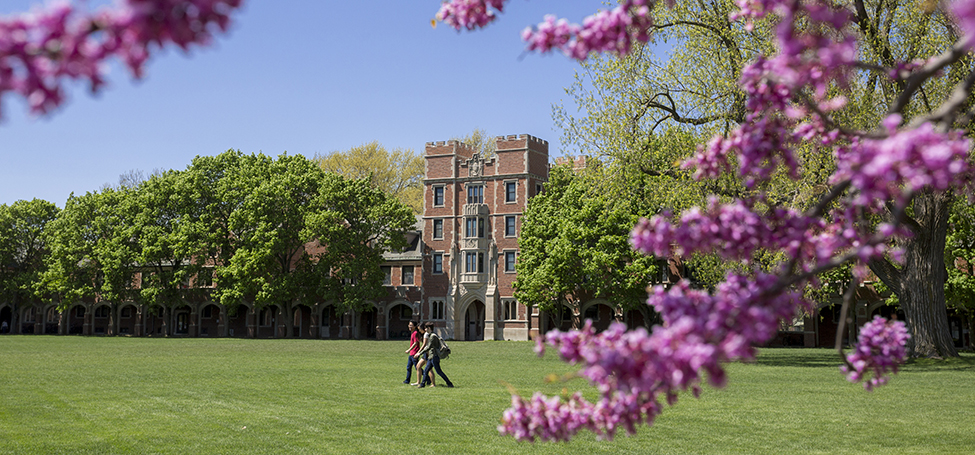
From fossil fuel divestment to accessibility
Topics relevant to the larger student and alumni community were the focus of discussion sessions between the Alumni Council and College administrators during the council’s March meeting on campus.
Fossil fuel divestment
Council members learned more about recent demonstrations by students asking for Grinnell to divest itself of all endowment funds placed in the fossil fuels industry. President Raynard S. Kington informed the council of the policy recently adopted by the Board of Trustees for dealing with such requests from any segment of the Grinnell community. Emphasizing that he is pleased when students take on issues like global warming and divestment, Kington also affirmed the College’s responsibility to guide them toward viewing these matters in the widest possible context. Becoming educated about the impact of financial decisions is crucial, he said.
Continued growth of the Center for Careers, Life, and Service
Mark Peltz, the Daniel ’77 and Patricia Jipp ’80 Finkelman Dean of Careers, Life, and Service (CLS), explained several aspects of CLS’s current strategies for preparing students to thrive both during their years at Grinnell and after graduation. On-campus efforts include engaging more students in externships, internships, industry-focused visits, and career counseling.
Angela Onwuachi-Willig ’94, council president, noted that two CLS programs are an outgrowth of earlier Alumni Council undertakings: 1) recruiting alumni to host spring break externships and 2) encouraging them to participate in alumni/student mentoring programs. Both of these efforts remain vital, ongoing interests of the council.
Ensuring accessibility
Autumn Wilke, assistant dean for disability resources, discussed plans for the new Humanities and Social Studies Complex (HSSC), which includes renovations of Alumni Recitation Hall and Carnegie Hall. At the beginning of the design process for the HSSC, the Alumni Council passed a resolution insisting upon the inclusion of hearing loops in the HSSC and other campus buildings and requesting accessibility of all kinds that exceeds legal requirements. The Alumni Council continues to be a vocal advocate for guaranteeing campuswide access for all persons with disabilities.
Strategic planning
In addition, the council engaged in strategic planning for the future. Specific concerns focus on the council’s visibility to the alumni body and students, the representative capacity of the council, its efforts to improve communication with and representation of alumni, and aligning the work of the Alumni Council more deliberately with the College’s Office of Development and Alumni Relations to achieve the greatest effectiveness.
New members, leaders
Members finishing their terms on the council include Richard Raridon ’53, Gof Thomson ’62, Barbara Hunt Moore ’65, and Edward Senn ’79. All four have made valuable contributions during their years of service and were recognized and feted at the Alumni Council closing dinner at Grinnell House.
Incoming members were selected by the Council Membership Committee and affirmed by the full council on the basis of their Grinnell era, their current location, and their potential specific contributions to the College and the council. They are Robert Ruhl ’76, Phillip Hales ’02, Brigham Hoegh ’08, and Graciela Guzman ’11. Their terms begin June 3, during Reunion 2017.
Council leadership will also change, as Onwuachi-Willig becomes past-president, Peter Calvert ’79 becomes president, and John “Fritz” Schwaller ’69 steps into the role of president-elect.
